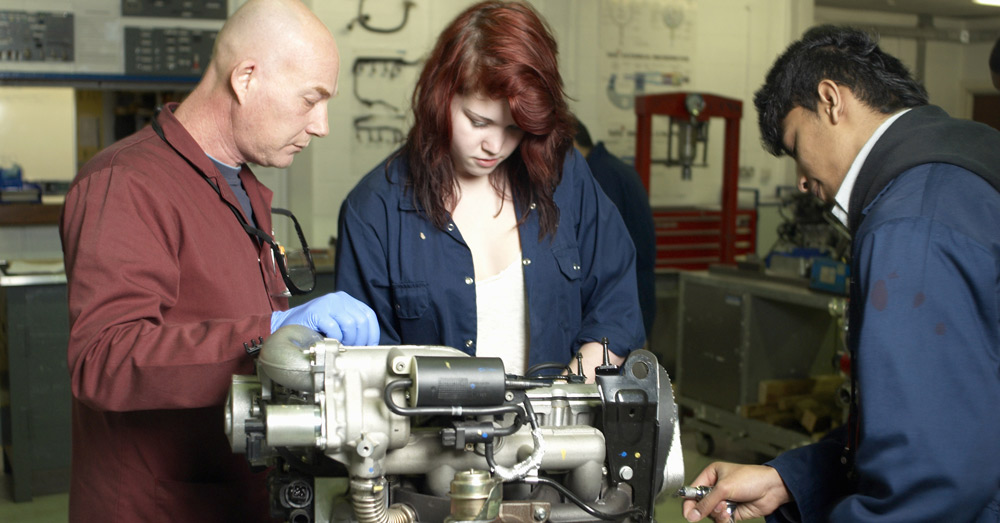High technology has transformed the automotive industry in the past two decades. The term “auto mechanic” is no longer appropriate — now the proper term is “Automotive Technician.”
Today’s technician is a well-educated individual who is well versed in electronics, computers and control systems, able to read schematics and operate a variety of advanced diagnostic equipment and tools.
All automotive technical schools will offer a variety of courses for entry-level employment in the automotive field. An entry-level course covering all eight areas of automotive maintenance is generally around 56 weeks.
Knowing how employers rate the value of their technicians in today’s technical environment will aid in making a choice as to the length and type of study to maximize your future success in the field.
Most Important Assets
The employer judges your ability to quickly and accurately diagnose a problem through good reasoning and knowledge of automobiles. They are looking for technicians who consider diagnosing hard-to-find problems one of their most gratifying duties.
Strong communication and analytical skills are essential. This requires good reading comprehension, skills with the computer, good mathematic skills and the ability to study highly technical service manuals.
A valuable employee takes the time to keep abreast of the latest technology and the methods for diagnosing and conducting repairs of this technology. Continued training in electronics is important due to the fact that the most common problems encountered with vehicles today can be traced to electrical components or a series of components. Knowing how all the electrical components interact and react is essential.
There are some particular skills that build value. Administrative skills open the door to positions like shop foreman or manager. In addition, those with skills in human relations are always in demand as service advisors.
Certifications
Certifications are all-important to the employer. Entry-level technicians will not be eligible for certification immediately. If you have attended a related program in high school, received training in a vocational school, trade school or community college, this counts as one year of experience. Highly-respected military training as an automotive or truck technician is considered as experience.
The area in which you have trained demonstrates your future value, as long as your performance also reflects your skill. The certificates referred to are the National Institute for Automotive Service Excellence or (ASE) certifications. There are eight areas for certification including brakes, suspension, air conditioning, engine rebuilding, engine performance, just to name a few. To become a Master ASE certified technician, you must pass the tests for all eight areas.

